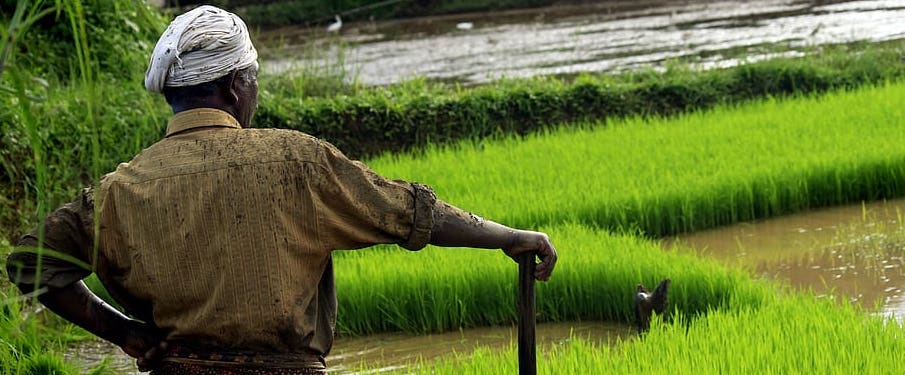
World Food Day: Let’s Build a Hunger-Free World for All Children
In the spirit of World Food Day, we stand united to combat child hunger and its far-reaching consequences. Join us on this journey towards a brighter, nourished future for every child.

In the heart of India’s Haryana state, farmer Satish Kumar gazes at his submerged rice fields, his hope drowned in the aftermath of a devastating flood. “I’ve suffered a tremendous loss,” laments Kumar, whose family relies solely on rice farming. The torrential rains that plagued northern India have left his fields underwater, his livelihood hanging by a thread.
The consequences of this catastrophe, however, are far-reaching. India, the world’s largest exporter of rice, has taken a drastic step to quell domestic price surges and ensure food security. The country imposed a ban on exporting non-basmati white rice, a move that has sent shockwaves through global food markets and ignited fears of rampant inflation.
Over three billion people worldwide depend on rice as a staple food, with India accounting for around 40% of global rice exports. Economists have raised concerns that India’s export ban is a new blow to an already fragile global food supply chain, further strained by events like Russia’s incursion into Ukraine and climatic anomalies such as El Niño.
Experts caution that this decision could have significant market repercussions, disproportionately impacting vulnerable populations in the Global South. Farmers like Kumar feel the weight of this decision acutely; rising market prices do not translate into windfalls for them. “The ban is going to have an adverse effect on all of us,” he said, knowing that this decision could spell the end for many farmers already reeling from natural disasters.
The abrupt ban announcement led to panic buying, raising the price of rice to a 12-year high. However, this ban does not cover basmati rice, the premium variety. While India is not the first country to restrict food exports for domestic supply, its decision is sending shockwaves through the international community.
The turmoil in global markets triggered by Russia’s withdrawal from the Black Sea grain pact and India’s export restrictions creates uncertainty about grain availability and raises concerns about widespread hunger.

Arif Husain, chief economist at the United Nations World Food Programme, stresses the gravity of this situation. Rice, wheat, and corn collectively form the backbone of diets for billions, particularly in impoverished regions. Nepal and Vietnam have already experienced surges in rice prices due to India’s export ban. Thailand, another major rice exporter, has also seen domestic prices soar.
Countries like Singapore, Indonesia, and the Philippines have appealed for exemptions from the ban, but the broader market impact remains concerning. Economists fear this ban could trigger similar actions by competing rice-exporting countries, exacerbating an already challenging situation marked by debt, inflation, and depreciating currencies.
In the face of these complex challenges, the world finds itself bracing for food supply disruptions, adding another layer of instability to an already fragile global food distribution network.

In the spirit of World Food Day, we stand united to combat child hunger and its far-reaching consequences. Join us on this journey towards a brighter, nourished future for every child.

Ensuring that every child has access to nutritious meals is not just a matter of physical health but also a fundamental building block for their mental and emotional well-being.

In countries with easy access to food, millions of children still suffer from malnutrition. This crisis often stems from the stark difference between empty calories and nourishing meals.
Adding {{itemName}} to cart
Added {{itemName}} to cart